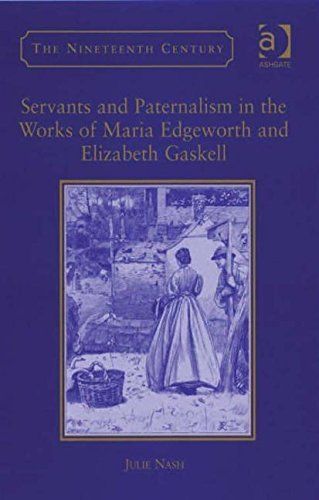
Servants and Paternalism in the Works of Maria Edgeworth and Elizabeth Gaskell
"Servant characters, Nash contends, enable these writers to give voice to the contradictions inherent in the popular paternalistic philosophy of their times because the situation of domestic servitude itself embodies such inconsistencies. Servants, whose labor was essential to the economic and social function of eighteenth- and nineteenth-century British society, made up the largest category of workers in England by the nineteenth century and yet were expected to be socially invisible. At the same time, they lived in the same houses as their masters and mistresses and were privy to the most intimate details of their lives. Both Edgeworth and Gaskell created servant characters who challenge the social hierarchy, thus exposing the potential for dehumanization and corruption inherent in the paternalistic philosophy. Nash's study opens up important avenues for future scholars of women's fiction in the nineteenth century."--BOOK JACKET.